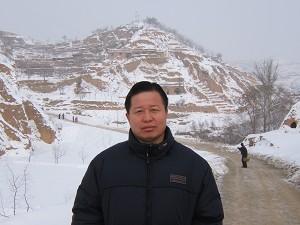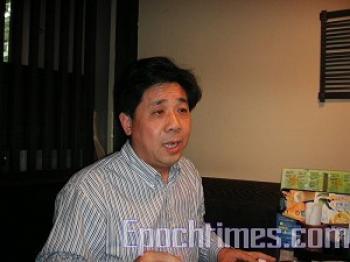TOKYO—Following Chinese communist regime’s announcements that restrictions will be relaxed for overseas reporters, a Japanese reporter in Beijing made attempts to interview the famous human rights attorney Gao Zhisheng. However his interview was obstructed by the authorities with the excuse that Gao Zhisheng is “different from ordinary Chinese citizens.”
Japan’s Sankei Shimbun reporter in Beijing later published a report on the Internet explaining his attempt to interview the famous lawyer.
At noon on January 16, after searching for some time, the reporter finally succeeded in finding the apartment building that Gao Zhisheng lives in. However, as soon as he stepped into the building and approached Gao’s aparment, he was stopped by four men. The men interrogated the reporter and demanded him to go away. According to the reporter’s web-published report, the men, who were all public security personnel, had even set up beds inside the building so they could monitor Gao and people who entered the building 24-hours a day.
Later the public security staff ordered the reporter to enter a “monitoring room” set up by the authorities in front of Gao’s residence. After the reporter entered the room, he saw a plain-clothes man get up from a bed. The reporter identified himself and explained he was there to interview Gao Zhisheng. The plain-clothes man asked him repeatedly, “Are you really Japanese? What are you here for? What do you want to ask?”
The reporter then asked why he wasn’t allowed to interview Gao and what law prevented him from conducting the interview. In response, the plain-clothes man said, “It is impossible [to interview Gao.]”
He added, “You need permission.” The reporter countered by saying that the Chinese authorities have relaxed the policy for foreign reporters. The person replied, “He is different from ordinary citizens” and ordered the reporter to leave.




